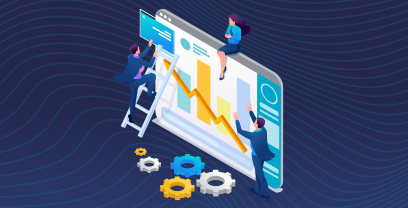|
The Forrester Wave™: Supplier Value Management Platforms, Q3 2024 See Report
Blog »
The Importance of Supplier Relationships and Technology in Meeting Regulatory Standards

A Recap from Ivalua NOW Paris
For organizations around the world, ensuring supply continuity in a rapidly-changing landscape has become their greatest challenge. At Ivalua NOW Paris, we heard from industry experts who have developed strategic approaches for managing suppliers and bolstering resilience of the entire supply chain. Through improvements like enhanced assessment and monitoring plus closer collaboration efforts, leaders are well equipped to address current challenges while also anticipating future risks with greater agility.
The pandemic put unprecedented pressure on organizations to find ways of stabilizing their supply chains. Find out how industry leaders are preparing for future disruption by improving supplier assessment techniques and investing in close collaborations – ensuring they come out ahead no matter what challenges arise!
Miljenko Galic, EnBW, Jos Joos KPMG, Jarrod McAdoo, Ivalua
Introduction
As companies navigate through the ever-evolving regulatory landscape, they face the challenge of meeting compliance requirements while adapting to new technology. This creates a constant balancing act that can become overwhelming if not properly addressed. Two major companies, EnBW and KPMG, offered valuable insights into tackling these challenges. ENBW emphasized the importance of strong supplier relationships and utilizing data tools. KPMG stressed the need for a risk framework, policies, procedures, and technological solutions. In this blog, we will explore the significance of these takeaways on meeting regulatory standards.
The Importance of Supplier Relationships
Firstly, EnBW’s takeaway regarding the importance of supplier relationships cannot be overstated. Strong relationships that prioritize cooperation and collaboration can have far-reaching benefits. When procurement professionals communicate and work closely with their most important suppliers, they can often streamline processes and reduce costs. Additionally, suppliers can become more invested in the success of their partners, leading to improved quality and service levels. Another key aspect is the use of data tools. Data plays a critical role in identifying areas of improvement, forecasting future trends, and measuring the success of initiatives. By investing in data tools that generate, store, visualize, and utilize data, companies can better measure and optimize their processes.
Secondly, KPMG stresses the need for a risk framework, policies, procedures, and technological solutions. The regulatory landscape is continually changing, and companies must have a comprehensive framework that accounts for all possible risks. This framework should be supported by strong policies and procedures that align with regulatory requirements. Technological solutions can assist with assessing risk, tracking environmental, social, and governance (ESG) considerations and ensuring that all regulations are being met. Technology adoption enables companies to automate compliance processes and improve reporting accuracy, saving time and resources in the long term.
In practice, meeting these requirements is not achievable manually, and companies must adopt technological solutions for regulation and reporting. Implementing the right tech solution allows for better visibility into processes, increases efficiency, and reduces the risk of errors. The adoption of technology, however, must be done in a way that considers the entire organization. A proper foundation needs to be laid, and all stakeholders must be onboarded and trained correctly. Companies must build a bridge for technology adoption to adhere to all of these regulations to address the ever-evolving regulatory landscape.
Regulatory and compliance requirements are never-ending and can evolve with time. Ensuring that companies adhere to these regulations is no longer a matter of just checking boxes, but rather, a continuous process that requires companies to remain vigilant. Both ENBW and KPMG’s takeaways show that having strong supplier relationships and investing in the right technology solutions are key to meeting regulatory standards. By collaborating with suppliers, utilizing data tools, developing risk frameworks, policies and procedures, and adopting technological solutions, companies can better navigate and succeed in the regulatory landscape.
A Strategic Approach
Meeting and maintaining the ever-changing regulatory landscape is a never-ending process that must be done with great care and attention to detail. ENBW and KPMG offer valuable insights in navigating these challenges. Strong supplier relationships and utilizing data tools, as ENBW suggests, can lead to streamlining processes, reducing costs and improving the quality of services. KPMG suggests that developing a risk framework, policies, and procedures, and adopting technological solutions are imperative to meeting compliance and regulatory requirements. The recommendations by these companies highlight the importance of a strategic approach, cooperation with suppliers, good governance and the use of technology. By following these takeaways, companies can receive far-reaching benefits that optimize their operations, reduce the risk of errors and achieve regulatory compliance.
Learn more about the Ivalua Partner Ecosystem here.

Jarrod McAdoo
Director of Product Marketing
Jarrod McAdoo brings over 26 years of procurement experience to Ivalua as a product expert for the Analytics & Insights, Supplier Management, Spend Analysis, and Environmental Impact Center Solutions. A frequent thought leadership contributor for the Ivalua Blog, Jarrod has worked across multiple industries, including higher education, public sector, retail, manufacturing, and engineered products. Prior to his time at Ivalua, Jarrod held various roles in category and supplier management—including strategic sourcing and procurement team management where he led teams to implement shared service procurement models and Source-to-Pay systems. Jarrod holds a Masters in Business Administration (MBA) from Duquesne University and a Bachelor of Science degree from Carnegie Mellon University.


